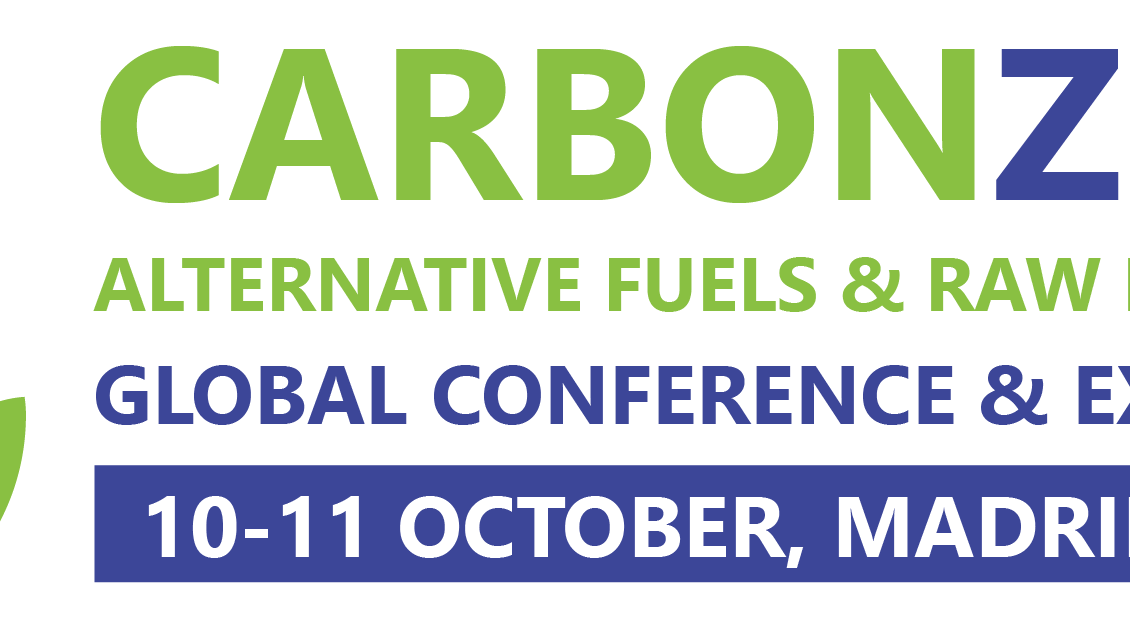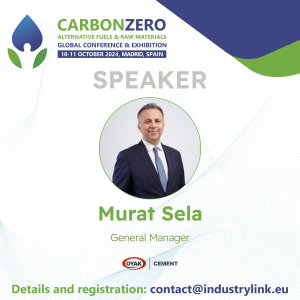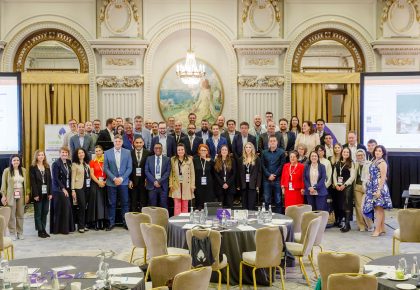
OYAK Cement embraces an important role for climate change: Entrepreneurship- presented by Murat Sela, General Manager – Oyak Cement, Alternative Fuels towards accelerating the shift to net zero – BUA Cement Perspective given by Yusuf Binji, Managing Director and CEO – BUA Cement and Fostering Waste Co-Processing in Latin America’s Cement Kilns by Proverde’s Manager Carlos Roberto Escobar are just a few topics to be discussed at the upcoming CarbonZero Global Conference and Exhibition 2024, to be held on October 10 and 11 in Madrid, Spain. The exquisite event aimed at alternative fuels and raw materials brings together over 100 cement C+ executives and decision makers to unite the work they do towards reaching Net Zero in a two day exclusive event.
Cement Industry expresses a strong commitment to contribute to reach net zero emissions. According to Cembureau Roadmap the industry will need decisive political action in key areas including Carbon Capture, replacement of fossil fuels and increasing usage of low carbon cement products.
Obviously entrepreneurship will be the key driver for developing fast and efficient solutions to bring all these in life. Technological challenges and big need for financing new projects makes risk taking ability of entrepreneurs very valuable, especially in today’s unstable and fragile environment.
OYAK Cement, while getting ready for the future’s breakthrough technologies, is embracing an entrepreneurship role to push the limits of the existing technological levers to mitigate CO2 emissions. To achieve this, the company invested in the newest combustion technologies and waste heat recovery systems but the most game changing investments are calcined clay plants in West Africa.
Alternative Fuels towards accelerating the shift to net zero – BUA Cement Perspective
BUA Cement Plc is the second largest cement company listed company on the Nigerian Stock Exchange and unarguably in the sub-Saharan Africa region market. The company has a well-grown market share locally above 30 percent thanks to its marketing prowess driven by an aggressive expansion strategy over the past decade culminating in a total combined installed capacity of 17 million mtpa.
BUA operates two standalone integrated cement plants, namely the Obu plant in Southern Nigeria which comprise three (3) production lines (I, II, & III) with installed captive power of 91MW connected to a natural gas (NG) pipeline and Sokoto plant in Northwestern Nigeria encompassing four (4) integrated production lines (II, III, IV, & V) with installed captive power of 120MW reliant on liquified natural gas being trucked hundred kilometres to the site. Previously, the cement factories relied primarily on liquid fuels such as heavy fuel oil (HFO) and diesel for electricity generation, and a solid/liquid mix of coal and HFO for kiln firing. However, as HFO is significantly more expensive than NG whilst combustion of these fossil fuels in cement production represents a significant source of greenhouse gas (GHG) emissions, eliminating HFO in kiln firing has never been more important.
Recognizing the critical global imperative to address climate change, BUA Cement is working on implementing a GHG Emissions Plan, involving mitigation strategies for reaching the net-zero targets via short, medium, and long-term phases by switching to low-emissions-intensity fuels particularly alternative fuels (AFs) as a substitute for coal in the kilns. Therefore, the utilization of AFs is expected to provide not only cost benefits to the company but also mitigate CO2 without any environmental issues and holistically dispose of municipal waste. It is worth noting that the use of AFs (rice husk/ groundnut shells) had been used in the past but discontinued due to a number of technical issues. At present, the company is averse to falling behind in decarbonizing and intends to reactivate the AFs project with the Sokoto plant. By this drive of continually exploring alternative and ambitious strategies to reaching net-zero emissions including the use of cementitious raw materials, optimizing clinker-to-cement ratio, and enhancing energy efficiency, among others, BUA Cement is poised to achieve both economic and environmental benefits sooner than later.
CarbonZero Global Conference and Exhibition 2024 also welcomes as a speaker Carlos Roberto Escobar, Manager of Proverde – Waste Management and Alternative Resources Unit of Cementos Progreso. Guatemala.
Fostering Waste Co-Processing in Latin America’s Cement Kilns
His presentation addresses the potential of waste co-processing in cement kilns as a solution to waste management challenges in Latin America. It highlights the region’s increasing waste generation, and the environmental risks posed by uncontrolled waste disposal, including methane emissions. Co-processing waste in cement kilns offers both waste reduction and an alternative energy source, contributing to climate goals by reducing methane and CO₂ emissions.
However, the adoption of co-processing in Latin America remains low due to distrust in technology, weak legislation, and limited engagement by the cement industry. The presentation suggests learning from Europe’s success, where strong regulations and transparent practices have led to high adoption rates. The recommendations for Latin America include establishing clear legislation, providing financial incentives, and fostering trust through transparent communication between industries and communities.
More details about the event speakers and program are available at contact@industrylink.eu.







